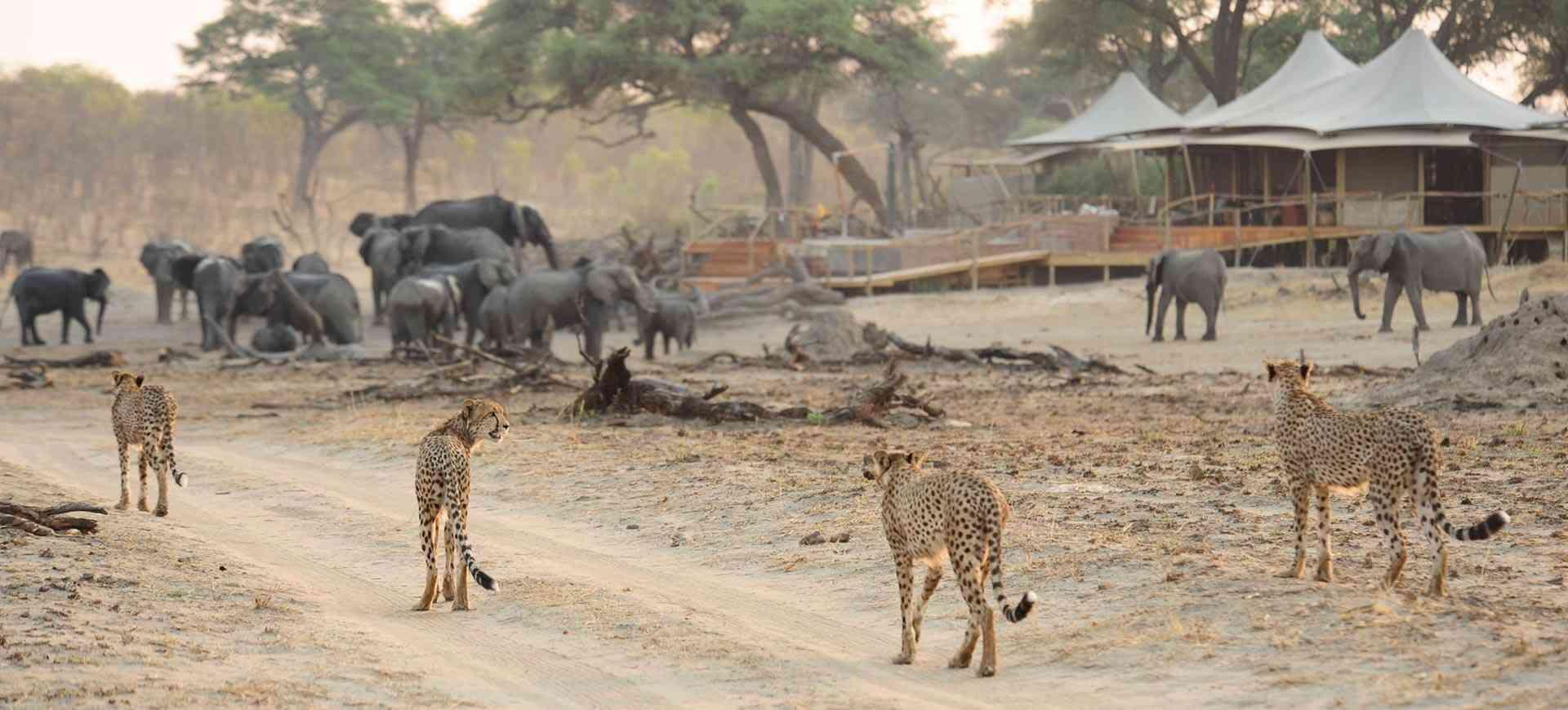Africa-Press – Zimbabwe. A 45-KILOMETRE detour through Hwange National Park had sparked a fierce backlash from leading conservation and tourism operators in Zimbabwe, who warn that it threatens the ecological heart of the Hwange region and the economy it supports.
In letters seen by NewsDay, Painted Dog Conservation (PDC) and the Amalinda Safari Collection have called for the immediate suspension of a plan to route commercial traffic through the sensitive Hwange National Park buffer zone.
The detour, from Cross Mabale to Mpofu to Dete to Cross Dete, is part of the Bulawayo-Victoria Falls Road rehabilitation project, undertaken by Asphalt Products.
However, stakeholders allege that they were not consulted, adding that the plan posed “grave” and potentially irreversible” risks.
In a letter dated October 17, PDC’s executive director, Peter Blinston, said that the area was a “critical wildlife corridor and buffer” for the safe movement of animals between Hwange National Park and surrounding lands.
“The introduction of commercial traffic through this sensitive zone would severely undermine these conservation gains and pose a grave risk to wildlife,” Blinston wrote, highlighting the danger to endangered painted dogs, elephants and other large mammals.
Amalinda Safari Collection, which operates Khulu Bush Camp, Ivory Lodge and Sable Valley, detailed the operational and ecological threats in its letter of October 16.
The company’s chief executive officer, Sharon Stead, warned that the route “traverses critical wildlife pathways and migratory routes,” and will “demonstrably elevate the risk of severe animal mortality.”
The tourism operator also raised practical concerns, stating that the detour adds “an unnecessary 45-kilometre extension to vehicle transit” and uses minor district roads “not suited to the anticipated vehicular load.”
This, they argue, will lead to delays, accelerated road degradation and a “severely compromised” service for guests, directly jeopardising the “substantial tourism revenue that supports local conservation and employment.”
Both organisations have expressed frustration at lack of prior engagement.
PDC’s letter noted that “key stakeholders, including ourselves and other conservation bodies… have not been consulted,” while Amalinda said the choice of route is “especially challenging” given the contractor’s understood capacity to build a “less intrusive alternative.”
The unified front from the conservation and tourism sectors presents a significant challenge to the project.
PDC has respectfully requested that works be “immediately suspended” pending consultation and environmental assessment, and that alternative routes outside the wildlife buffer zone be explored.
Similarly, Amalinda has urged Asphalt Products to “immediately place the current detour plan under review” and to adopt an existing commercial route as the preferred alternative.
The dispute puts a spotlight on the perennial conflict between infrastructure development and environmental preservation in ecologically sensitive areas.
Blinston said the project “threatens the economic sustainability of tourism and conservation operations in the area — sectors that rely heavily on the protection of Hwange’s unique wildlife heritage.”
Asphalt Products managing director Francis Mangwendeza referred questions to the Transport ministry.
“I am not in a position to answer. Ask the Transport ministry,” he said.
Transport and Infrastructural Development minister Felix Mhona did not answer questions sent to him. The government is currently constructing the strategic Bulawayo-Victoria Falls Highway, which is also in a bad state.
For More News And Analysis About Zimbabwe Follow Africa-Press






